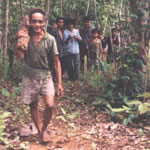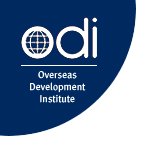| ASIA
PACIFIC WEEK 2008: Building Australia’s Asia Pacific Expertise,
29 January - 1 February 2008, Canberra. During one week of
activities graduate students from Australia and the region will have
a chance to present their research interests, meet with other students
and academics, participate in a wide range of training activities, be
introduced to the rich holdings on Asia and the Pacific at the ANU Library
and at the National Library and participate in a stimulating program
of events including cross-area workshops, keynote speeches, seminars
and master classes, film screenings, cultural performances and social
events. See http://rspas.anu.edu.au/asiapacificweek
THE CENTRE FOR ASIA-PACIFIC SOCIAL TRANSFORMATION
STUDIES (CAPSTRANS) fellowship applications close 4 February.
CAPSTRANS at the University of Wollongong is calling for applications
from interested scholars for its 2008 Senior Visiting Fellowship scheme
and Postdoctoral Writing Fellowship scheme. Applications are competitively
assessed. Details can be found at:
http://www.capstrans.edu.au/working/fellowship
-schemes.html
APPLICATION DEADLINE IS 4 FEB 2008.
THE IMPLICATIONS OF CLOSER CHINA-JAPAN RELATIONS,
lecture, 4 February, Melbourne. Asialink invites you to attend
a free public lecture by Emeritus Professor Peter Drysdale. With Japan
and China currently ranked No. 1 and No. 2 for Australian exports, Professor
Drysdale will consider what the warming of their political relations
means for Australia, the region and beyond. Monday 4 February 2008 from
6pm to 7pm at Theatre 3, ICT Building, 111 Barry Street, Carlton, The
University of Melbourne. RSVP to events@asialink.unimelb.edu.au
with "China-Japan" in the subject line.
RADICAL ELEGANCE EXHIBITION, 1 November - 17
February, Perth. This is an exhibition of women's clothing
by the renowned Japanese couturier Yohji Yamamoto, whose garments have
been a significant influence on contemporary haute couture and prêt
à porter clothes since his Paris debut in 1982. Art Gallery of
Western Australia, Perth Cultural Centre, Perth. www.artgallery.wa.gov.au/exhibitions/Yamamoto.asp
KRISHNA - LOVE AND DEVOTION EXHIBITION, 6 October
- 16 March, Melbourne. Krishna is one of the most popular of
the Hindu gods worshipped throughout Asia and in particular India. The
exhibition will explore Krishna iconography, through approximately 70
works including paintings, sculpture, textiles, photography, and jewellery.
Asian Tempore Exhibition Space, Level 1, National Gallery Victoria International,
180 St Kilda Road www.ngv.vic.gov.au/krishna/index.html
|
THE COLD WAR IN
ASIA: THE CULTURAL DIMENSION, 24 - 25 March 2008, Singapore.
This conference will investigate how Asian actors in the Cold War adhered
to certain Cold War doctrines or ideologies and how their cultural perceptions
predisposed them towards certain policies or to the political engagement
between states and social forces on the cultural front. Venue: Asia
Research Institute, National University of Singapore. http://www.ari.nus.edu.sg/events_categorydetails.asp?
categoryid=6&eventid=732
Those interested in participating should submit a 300-word
abstract and 100-word autobiographical note by 31 October 2007 to Ms
Valerie Yeo at ariyeov@nus.edu.sg
CRITICAL HAN STUDIES SYMPOSIUM & WORKSHOP,
24-27 April 2008, Stanford University. Call for Papers. Han
is a colossal category of identity that encompasses ninety-four percent
of the population of mainland China, making it the largest ethnic group
on earth. Participants in the first-ever Critical Han Studies Symposium
& Workshop will help develop materials to be published in two path-breaking
volumes: Critical Han Studies, an edited volume, and the Critical Han
Studies Reader, a collection of primary source materials in translation.
The deadline for paper and panel proposals is 3 December 2007. For more
information contact Professor Thomas S. Mullaney at tsmullaney@stanford.edu
or James Leibold at Latrobe University: http://www.latrobe.edu.au/socsci/staff/
leibold/ leibold.html
IS THIS THE ASIAN CENTURY? 17th Asian Studies
Association of Australia Conference, 1-3 July 2008, Melbourne.
The biennial Asian Studies Association of Australia conference is the
largest gathering of expertise on Asia in the southern hemisphere. The
theme for 2008 invites you to assess how the regions and issues on which
you are interested are faring. The ASAA conference is multi-disciplinary
and covers Central, South, South-East and North East Asia and the relationship
of all of these with the rest of the world. See http://www.conferenceworks.net.au/asaa
BEIJING OLYMPIC GAMES, 8-24 August 2008 http://en.beijing2008.cn/
TRANSITION AND INTERCHANGE Ninth Women in Asia
Conference, 29 September-1 October 2008, Brisbane. The University
of Queensland is hosting the ninth Women in Asia (WIA) Conference, to
be held from 29 September-1 October, 2008. Call for Papers: Contributions
are invited from various disciplines on a large number of themes concerning
the lives of women in Asia. Participants are encouraged to submit proposals
for panels (with 3-4 papers per panel). Individual proposals are also
welcome. Enquiries can be addressed to wia@uq.edu.au
ARTSingapore, 9-13 October 2008, Singapore. This contemporary
visual art fair is both a trade and consumer fair, and thus a platform
for art dealers and galleries to network and foster business relationships,
and for art collectors to acquire new works http://www.artsingapore.net/index-as.html
|
 About
the ARC Asia Pacific Futures Research Network
About
the ARC Asia Pacific Futures Research Network 




 Q:
When did you become interested in studying Asia and why?
Q:
When did you become interested in studying Asia and why?  Mandarin
was always one of those gruesomely tedious first year school subjects
for Tim Lindenmayer (
Mandarin
was always one of those gruesomely tedious first year school subjects
for Tim Lindenmayer ( http://blogs.odi.org.uk/blogs/main/archive/2007/12/20/5484.aspx
http://blogs.odi.org.uk/blogs/main/archive/2007/12/20/5484.aspx